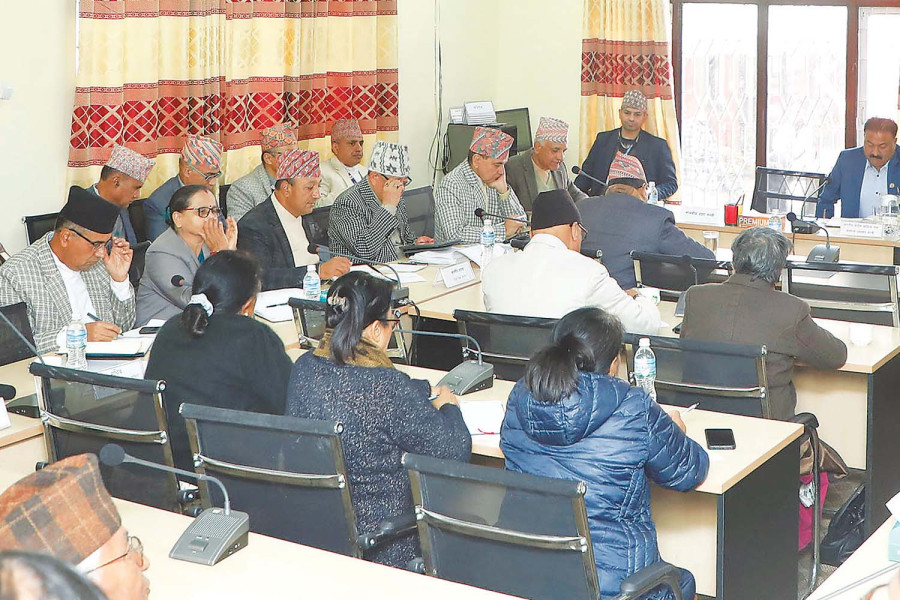National
Public Service Commission bats for stronger CDOs
Commission Chairperson Madhav Prasad Regmi’s proposal goes against provincial governments’ demands.
Post Report
Contrary to the demands of the provinces to scrap Chief District Officer (CDO) positions, the Public Service Commission has proposed retaining the post with even more power.
Presenting the commission’s position on the Federal Civil Service Bill in the State Affairs and Good Governance Committee of the House of Representatives, Madhav Prasad Regmi, chair of the constitutional body, not only advocated for the continuation of the position but also for elevating their order of precedence.
The commission conducts exams for permanent posting in government-funded offices and recommends candidates. It also offers suggestions for the promotion of civil servants.
Currently, the CDOs, who act as administrative heads of the districts, are placed below the chiefs of the local units in the order of precedence. He proposed revising it and putting the CDOs at the top at the district level.
“The CDOs are the federal government representatives,” he said. “They should be at the number one position even to make them more responsible for the security of respective districts.”
Over the years, the provincial governments have been claiming the CDOs must be removed as the constitution doesn’t recognise districts as administrative units. If not, they should at least be brought under the provincial governments.
The federal government has empowered them to impose curfews and maintain law and order in the districts. As they directly report to the federal home ministry, the provincial governments aren’t kept in the loop even when making crucial decisions.
The parliamentary committee conducting detailed deliberations over the bill had invited Regmi to present the commission’s view on the bill.
Regmi made yet another proposal contrary to the demands of the provincial government. “The federal government should be assigning the chief administrative officers at the local units and provincial secretaries,” he said.
The provincial governments have been demanding the administrative chiefs of the local units must come under their jurisdiction. For long they have asked the federal government to depute secretaries in bulk, whereby they would assign them to the respective ministries.
Finding agreement in the bill has not been possible following differences among the political parties and the pressure from civil servants. Civil servants are unwilling to come under the provincial governments saying their growth would stagnate if they do so. They are also lobbying to ensure the continuity of politically affiliated trade unions.
While the parties are close to agreeing on a provision to allow only one elected trade union, party-affiliated trade unions’ leaders are building pressure to retain all of them.
Last week, Congress and UML leaders had agreed to allow only elected trade unions. Congress chief whip Shyam Kumar Ghimire, in the House committee meeting, had said political parties’ unions should be banned in the bureaucracy.
However, Congress-affiliated trade union leaders have lobbied with party president Sher Bahadur Deuba for their continued existence.
Regmi, however, said it would be right to allow only officially elected trade unions. Unlike major parties, fringe parties are for completely stopping the trade unions.
“Trade unions have politicised civil service. There must be a complete ban on such unions,” said Dhruba Bahadur Pradhan, a Rastriya Prajatantra Party lawmaker.
In Friday’s meeting, Regmi echoed a provision in the bill to increase the retirement age of the civil servants from 58 years and 60 years. He also proposed a maximum entry age limit of 32 years for males and 37 years for females, which are currently 35 years and 40 years, respectively.
The bill envisions adding secretary positions, the third in rank after chief secretary and secretaries. Regmi has proposed reducing the tenure of chief secretary to two years and secretaries to three years.




 18.12°C Kathmandu
18.12°C Kathmandu













